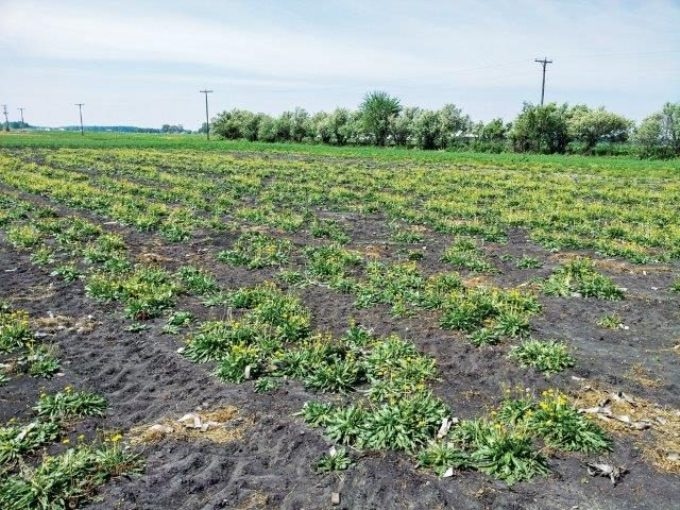Jul 28 2016
While most farmers are actively trying to kill weeds, researchers in Ohio are trying to grow them – fast. Taraxacum kok-saghyz, a special variety of dandelion from Kazakhstan — nicknamed “Buckeye Gold” by the researchers studying it — may be the answer to sustainable and U.S.-based rubber-making. An article in Chemical & Engineering News (C&EN), the weekly newsmagazine of the American Chemical Society, examines the plants’ potential for revolutionizing the rubber industry.
 Rubber plantations of the future could consist of dandelion fields.
Rubber plantations of the future could consist of dandelion fields.
Melody Bomgardner, a senior editor at C&EN, takes a look at the work of Katrina Cornish, a researcher currently studying Buckeye Gold at the Ohio State University. While it might look like a regular dandelion, this variety’s roots contain 10-15 percent natural rubber. The goal is to cultivate these dandelions to the point where they can become an industrial rubber crop. Currently, rubber trees that grow on plantations in Thailand, Indonesia and Malaysia take years to grow, making it hard for producers to adapt to changes in the market. Also, transporting the material is costly to both the industry and the environment. With Buckeye Gold, crops can be grown locally, and they mature much faster than rubber trees.
However, scaling up dandelion cultivation so it is competitive with the well-established rubber industry will take time. Researchers are looking to modify these dandelions so they can withstand disease and pest-control measures, which would otherwise kill them. Also, because the plant’s root has only small amounts of rubber in it, researchers will have to find ways to use the rest of the crop in order for it to be truly sustainable.